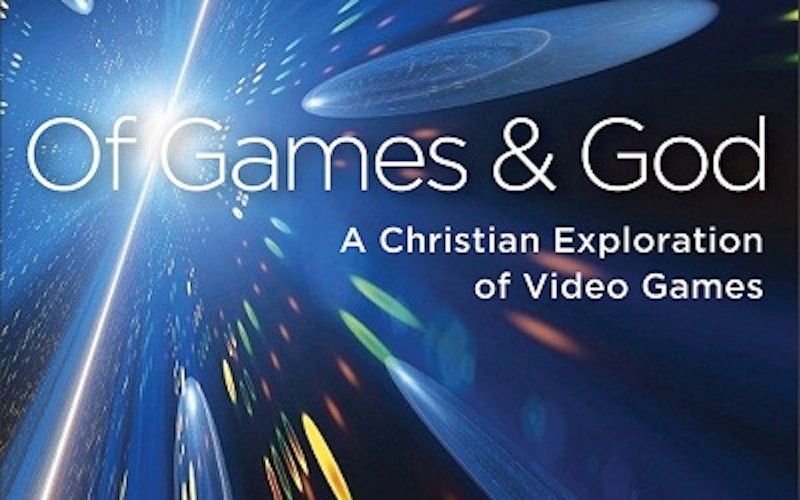
Games
A new call for Christian engagement with video games
“You won’t find many religious people here,” said an up-and-coming game designer when I informed him that I was interviewing video-game makers about their religious and spiritual beliefs. He was right.
While at this year’s Game Developers Conference in San Francisco, I had the opportunity to talk to a dozen influential game makers about their core beliefs as part of an ongoing project for Gamechurch.com. The majority of these developers were indeed atheists, yet the games they made were full of creativity, life and empathy for others - themes that I believe coincide with my Christian faith. This experience confirmed for me the necessity of Kevin Schut’s new book Of Games and God: A Christian Exploration of Video Games, which both calls Christians to engage games critically and be salt and light in gaming culture.
It is no secret that video games have not always been well received by Christians. Some of this is understandable, due to the violent, misogynistic and “addictive” elements of gaming culture. Further, it is assumed that games pull people away from living productively and forming healthy relationships. Yet we find ourselves in a time when video games are incredibly popular. A majority of Americans play video games and the statistics don’t exactly line up with many of the stereotypes Christians cite.
- 183 million people in the United States play video games for an hour a day.
- The average gamer player is 30 and has been playing games for 12 years.
- The average age of the most frequent game purchaser is 35 years old.
- 47% of all gamers are women.
- 62% of gamers play games with others, either in person or online.
Christians should care about video games because people care about them. It is difficult to reach out in love to people while maintaining an uneducated disdain for the things they are invested in. Schut puts it this way:
Saying that video games contain ideas and perspectives contrary to Christian teaching does not make it imperative to stop playing them or to argue that there is no space in the medium for a Christian spirituality. Rather I think we need to critically engage games … To wall ourselves off, outside of the periodic retreat into a quiet wilderness that Jesus practiced, is to miss the point that all media is broken (including the explicitly Christian stuff) and that Christ called us to live in the world.
Similar sentiments led me to begin writing critically about video games through the lens of my Christian faith three years ago. Consequently, I am thrilled, thanks to Schut, to have a tremendous resource to share with Christians to help them understand not only why they should care about video games, but also why they are worth engaging. Schut helps Christians understand what video games are and what they do best. He also wades faithfully and thoughtfully through the most common objections leveled against the medium by Christians with chapters on violence, games’ treatment of women, addiction and isolation.
While aware of and honest about their shortcomings, Schut shares how games are inherently educational and have the ability to communicate powerful messages in unique ways. And finally, Schut challenges Christian game makers to fight the temptation to become insular by making games that only appeal to Christians.
Video games, like everything else in this fallen world, are not irreparably broken. Schut’s book helps Christians move away from scoring games on their morality and toward a more Christocentric type of games criticism. “As in all areas of life,” Schut writes, “when we play and when we critique video games, our Savior calls us to combat that which makes us less human, less whole and less healthy, and to cultivate that which brings healing, creativity and shalom.”
If we, as Christians, would learn how to thoughtfully engage video games, we might find ourselves poised to have some grace to impart to the millions of people across the globe who play them.
It is difficult to reach out in love to people while maintaining an uneducated disdain for the things they are invested in.
Topics: Games, Culture At Large, Arts & Leisure, Books, Theology & The Church, Evangelism